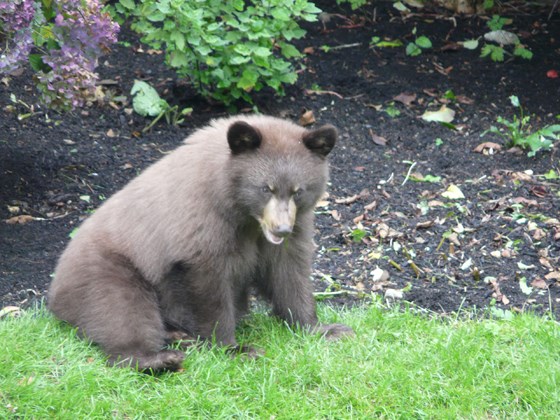If you haven't already done so, now's the time to make sure your home and yard are free of anything that may tempt bears looking to fatten up before a long winter's nap.
This time of year, black bears are trying to take in about 20,000 calories per day to last them through hibernation, which typically starts at the end of October, according to Tony Webb, chairman of the North Shore Black Bear Society Attractants like fallen fruit from trees, bird feeders and garbage should be kept well out of reach or, even better, nose-shot of bears.
"Of course, a bear can smell a bird feeder from blocks away," Webb said. "Never underestimate the climbing ability and the ingenuity of a bear."
The main attractant is, as per usual, neglected garbage, Webb said. Unlike fruit, which will rot and biodegrade, garbage is left outside in steady supplyyear round, which can alter a bear's instinctive behaviour.
"A bear will not go into hibernation if there's food available. It will go into semi-hibernation, which is not good," Webb said.
Once bears become habituated to human food, they are usually destroyed, Webb said.
Generally residents in bear-dense neighbourhoods have been getting the message, Webb said. Only one bear has been killed on the North Shore so far in 2013, which is quite low.
"Over the last decade, thank goodness, there's been tremendous improvement. We've got about 80 per cent compliance," he said. "We are very encouraged by the public compliance and cooperation. Keep it up." West Vancouver police were recently called to
shoo away a bear from a family's yard on Orchard Place. The bear was drawn to the yard because of the appeal of, literally, lowhanging fruit. After the bear had his fill, he left the area on his own. On the recommendation of West Vancouver officers, the family has since had the bear-baiting tree removed.



